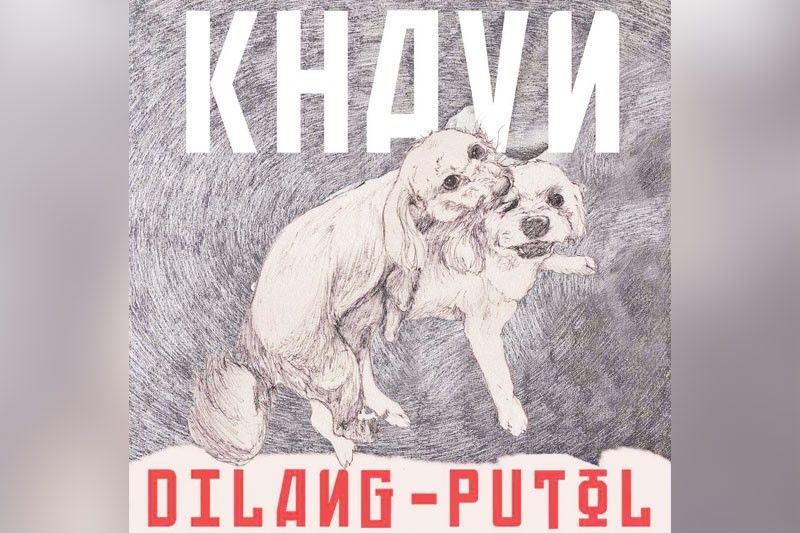Dilang-putol: Cat got his tongue


Now that we’ve reached the age of pre-censorship and the use of postmodern tools of communication, such that any stray report may or may not disintegrate into false news at the click of a mouse, consider that in the mid-‘90s the alternative punk local new wave band the Wuds released Nakaupo sa Puso, whose title track employed the typewriter as a musical instrument, that’s right, all the clackety clack racket punctuated by the ring when cartridge is to be maneuvered back to its flush left position, the revolutionary word processor had not yet arrived in these islands.
It’s only belatedly that we get to appreciate the prescience of Wuds leader Bobby Balingit’s experimentations at turn of the millennium, as any hardboiled journalist of the old school from Max Soliven to Ricky Lo, both since departed, would know, the sound of a typewriter is music of the newsroom, at least in woebegone days.
This the Wuds and Balingit, who recites most of the verses like a poem except for the chorus, make clear, a salute and tribute to a writer’s tool that was in itself revolutionary in its time, while assimilating eastern philosophy of Ananda marga as well as the ‘70s school of love, devotion and surrender by way of Mahavishnu, Devadip and Narada.

Music was heard differently in those days, and so was poetry. Enter stage left Soliman Cruz at the Oarhouse in Malate, and he has a theory that poets should never read their own work, much less recite it from memory, because what for are there actors, he says. He sees the reading of poetry as a potential ensemble performance, elaborate and almost orchestral in approach, or was that the Red Horse speaking, or the pale Pilsen listening, and the book of poems itself a grid that could unleash all the potential power of art, straight down the gullet like a shot of tequila Baler.
Well, Soliman is a walking workshop in himself, introducing kids and inmates to theater while leapfrogging from a vagabond life to become one of the best actors of his generation, as a recent recognition from the Film Development Council will attest. Perhaps the same can be said of multifaceted artist Khavn dela Cruz, whose spoken word album Dilang-Putol can be accessed on Spotify — that is, in terms of attitude and the same take no prisoners experimentation, the extreme stream of consciousness that would leave the listener drunk or infuriated or both, left holding the bag of verses, drum machines, programmed bass loops, horns and keyboards riding out the storm.
Not every day that you come across a work of Dilang-Putol’s magnitude, in fact named after an alias of a general of the Katipunan, and the cover art of dogs copulating can be anything but compelling, a common enough scene out of the street that never fails to stir some form of amusement if not bemusement from passers-by, something you might see every day but not quite, maybe even as rarely as you get to hear the Beatles’ Why Don’t We Do It in the Road on the radio.
Cut to the opening track Usapang Pusa, where a segue in the extreme of subconsciousness at around the part Trece Martires is mentioned, the musical structure is suddenly reminiscent of that sequence in Ishmael Bernal’s Manila by Night, where everyone’s high by the breakwater, high on life, poverty, cannabis and the beautiful squalor of Manila bay, the impromptu porn of rugby and electric piano a likely tribute to the late director, or it could also be just my imagination running away with me, streams of netherland coming from left field.
Bakit ako malungkot? has a supple parabolic bass line around which Khavn recites the verses, less of a poker face than that other spoken word maestro Lourd de Veyra but a bit more subtle, it is after all a crazy planet(s).
What then do we make of Ang Babeng Nakaputi but reminisce of the urban legends of Balete Drive, and Batas 69 ruminates on all the girls that got away and shares the writer’s own take on sexual politics, how monsters chase and stalk muses, or vice versa.
Show stopper is Amerika, where everything you wanted to hear or suspected about America but were afraid to ask or listen is narrated for all its worth, the guy couldn’t care less whether he gets a visa or not, or maybe even a passport for that matter, it’s clear we will live or die here, in the land of cut tongues and love, the Philippines. Even the word dictator doesn’t have the same ring to it anymore.
- Latest
- Trending


























 Exclusive
Exclusive






